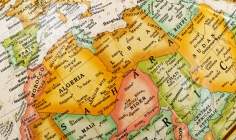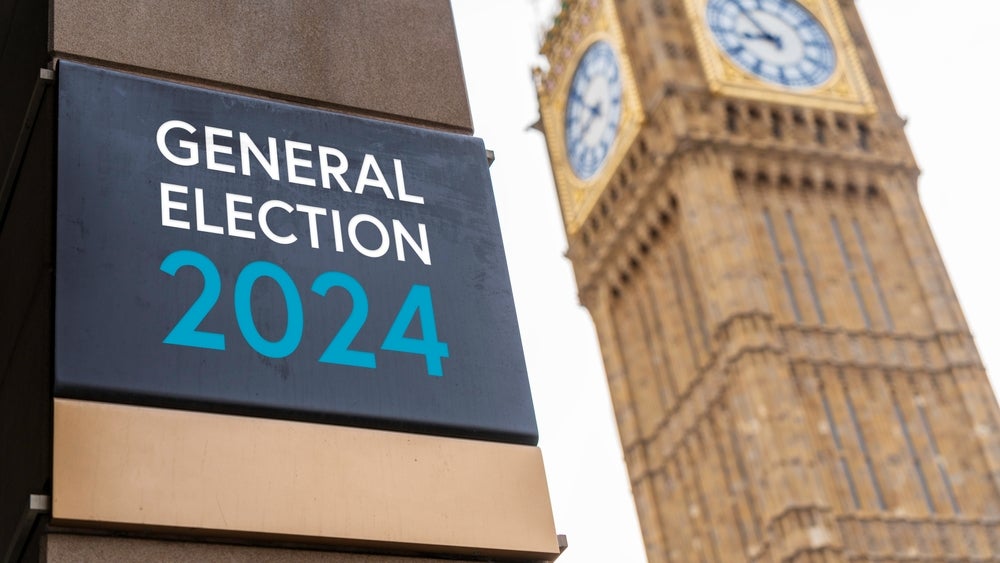
With the fallout from the Arab Spring spreading uncertainty, North African leasing companies face an unpredictable future, as Paul Golden reports.
Economic and social volatility have created a difficult trading climate for leasing companies in North Africa, with governments struggling to create conditions that encourage investment from the private sector.
The International Monetary Fund (IMF) has acknowledged that in an environment of heightened socio-economic tensions, regional insecurity and strained public finances, the North African states of Morocco, Tunisia and Egypt (part of a group referred to as Arab countries in transition) face a difficult task in delivering on expectations for growth.
Internal and external factors have led to a deterioration in private sector sentiment and activity across this group of countries, which the IMF suggests could be addressed by strengthening bankruptcy, provisioning and collateral regulations, developing credit bureaus and improving market infrastructure to reduce risk premia and boost access to credit.
At individual country level, it recommends removing bottlenecks to investment in the electricity and transport sectors to boost economic activity in Egypt, while recognising that an exceptionally strong harvest in Morocco has compensated for a slowdown in non-agricultural activity created by weak external demand.
How well do you really know your competitors?
Access the most comprehensive Company Profiles on the market, powered by GlobalData. Save hours of research. Gain competitive edge.

Thank you!
Your download email will arrive shortly
Not ready to buy yet? Download a free sample
We are confident about the unique quality of our Company Profiles. However, we want you to make the most beneficial decision for your business, so we offer a free sample that you can download by submitting the below form
By GlobalDataIn Tunisia, a stronger banking sector and a deeper domestic financial market are key elements in improving the availability of finance for investment activities.
This is not to say that the larger North African states are insignificant leasing markets.
The White Clarke Global Leasing Report 2012 ranks Morocco the 34th largest leasing market with a value of $1.55bn (1.14bn). The only other North African country to make the top 50 is Egypt in 44th place with total leasing volumes of $880m.
When leasing and hire purchase are taken into account, Morocco slips one place to 35th on account of negligible hire purchase volumes and Egypt remains in 44th position for the same reason. Tunisia does not make the top 50 in either list.
In terms of annual leasing volume as a percentage of gross domestic product, Morocco, at 23rd, scores higher than the other three African nations in the list (Egypt, Nigeria and South Africa) at 1.61%, with Egypt in 47th place with 0.37%.
According to Morocco’s Professional Association of Finance Companies, at the end of December 2012 there was MAD27.8bn (2.47bn) outstanding from 62,896 lease customers compared to 62,924 at the end of 2011, representing a small increase of 1.2%. The average value of these lease agreements rose marginally from MAD436,600 to MAD441,500.
New business was down 6.9% compared to the previous 12 months at MAD11.1bn across 15,080 new accounts, down from 15,312 in 2011.
As of 31 December 2012, gross outstanding consumer credit stood at MAD44.1bn, up MAD1.1bn or 2.6% from the same period in 2011. Car loans accounted for MAD15.5bn of this total and were up 15.9% for the year at an average of MAD86,700 (MAD76,860 in 2011).
The Professional Association of Finance Companies tracks two specialist factoring companies in Morocco – Attijari Factoring and Morocco Factoring – which generated business of MAD21.5bn last year compared to MAD11.9bn in 2011.
Bank factoring activity rose 93% last year to approximately MAD6.6bn while outstanding debt forgiveness as of 31 December 2012 amounted to MAD4.8bn (up 59.7% on the previous 12 months).
Regulations
Last year was marked by a revision of regulations applicable to credit institutions and over the past 12 months implementation of data protection legislation has also moved forward.
In late February, Morocco’s leasing association released a manual of leasing practice covering issues such as risk management, collection management and back office functions.
Olga de Carvalho, head of the development and network relations division of Crédit du Maroc Leasing explains that the company is having to deal with a period of low investment in leasing due to factors including the negative impact of the European economic crisis and a decline in sales of transportation assets, the main assets engaged in leasing in Morocco.
The industry has been particularly affected by the government’s decision to make cuts in the capital budget in the order of MAD15bn, which will cause a fall in the launch of new infrastructure projects, she adds.
"Other factors affecting the lease market include lengthening of payment terms and debt collection difficulties for Moroccan companies, contraction in the construction sector of 5.9% during the first quarter of 2013 (compared to 5% in Q1 2012), a slowdown in industrial activities, strong competition on rates and a general increase in non-performing loans across all sectors," says De Carvalho.
According to Crédit du Maroc Leasing’s annual report, at the end of last year total activity was down 18% compared to 2011 due to falling sales of construction materials and rolling stock (both commercial and industrial).
Tunisia
Most of the main lease companies in Tunisia reported growth in their latest market results. For example, Attijari Leasing’s volumes increased from TND11.2m (4.9m) at the end of September 2012 to TND11.4m at the end of September 2013, an increase of TND178,000 or 1.6%. Average account value was TND25,425 compared to TND21,740 last year.
New accounts at Arab Tunisian Lease for the same period increased in average value from TND12,751 to TND13,752, while the rate of non-performing loans improved by 1.1% to 8.7%.
Modern Leasing recorded a decrease of TND1,017 or 17.8% in the average value of new business to TND4,690, although net revenues were up 3.3% compared to the end of the third quarter of 2012 at TND10.3m.
Lessors Hannibal Lease and Leasing Tunisia also reported year-on-year profit growth and increases in the average loan amount for September 2013.
According to Amen Bank, the Tunisian economy grew in 2012 by 3.6%, almost twice the rate of 1.9% recorded in 2011. This recovery was achieved despite a contraction in non-manufacturing sectors and in major export-oriented manufacturing industries such as textiles and clothing and the mechanical and electrical sectors.
Growth in manufacturing was most pronounced in the chemical sector (where activity increased by 18.4% compared to 2011).
Higher output was also recorded for building materials, ceramics and glass (+12.2%), textiles, clothing and leather (+4%) and mechanical and electrical industries (+1.3%).
In terms of non-manufacturing industries, the most encouraging figures came from energy production where output increased by 15.6%, while mine production registered a decline of 3.4% as a result of industrial relations issues.
In the Tunisian corporate and institutional market, Union Bancaire pour le Commerce et l’Industrie has implemented a number of initiatives aimed at strengthening its market position over the past 12 months.
These initiatives comprised in particular the launch of a leasing industrial plan with the support of parent company BNP Paribas Leasing Solutions and the objective of significantly extending the base of active customers. Leasing volumes at the company declined to TND85.9m in 2012 compared to TND93.4m for the previous 12 months.
Data from Egypt’s General Authority for Financial Control suggests leasing activity reached EGP316.63m (33.8m) during September 2013 as compared to EGP395.55m for the previous month, although the number of contracts issued rose by 37%.
Machinery and equipment was the most active sector, accounting for 40% of total leasing revenues.
September saw the entry of a new player to the Egyptian leasing market (Premiere Leasing), bringing the total number of companies licensed to engage in leasing activity to 213, while another relatively new player – Al Ahly Leasing – announced it was on course to achieve profitability during its first full year of operation.
Al Ahly Leasing (whose major shareholder is National Bank of Egypt) commenced operations in June 2012 with four employees but expects to have 30 staff by the end of this year.
New leasing contracts across Egypt reached a value of EGP8bn last year. According to Al Ahly Leasing, leasing is growing in Egypt as local firms become aware of its benefits, although the company accepts it remains underdeveloped as it accounted for less than 0.5% of GDP in 2012.
The recent drop in the interest rate environment has made finance cheaper and more attractive to a lot of companies, which is good news for the economy and the labour market. This interest rate cut is expected to have a positive impact on leasing activity in Egypt by encouraging companies to revive their capital expenditure needs and expansion plans.
Jemil Ben Romdhane is managing director of Cassiopae MEA, created as a joint venture between global asset finance software provider Cassiopae and OXIA Tunisie Group in 2010. He accepts the North African leasing market could be in better shape, although some markets offer more encouragement than others.
"The market is weak due to political instability and there are still fewer opportunities in the countries that were impacted by the Arab Spring. There are more opportunities for business in countries such as Algeria or Morocco," he says.
Ben Romdhane agrees political upheaval has been the most significant development in the North African leasing market over the past 12 months given its significant impact on major projects. "The region has been affected by economic problems in Europe, but domestic political instability overshadows this issue."
He doesn’t expect the North African leasing market to grow significantly this year, not helped by the fact that governments have yet to take any direct or indirect action to support the industry.







